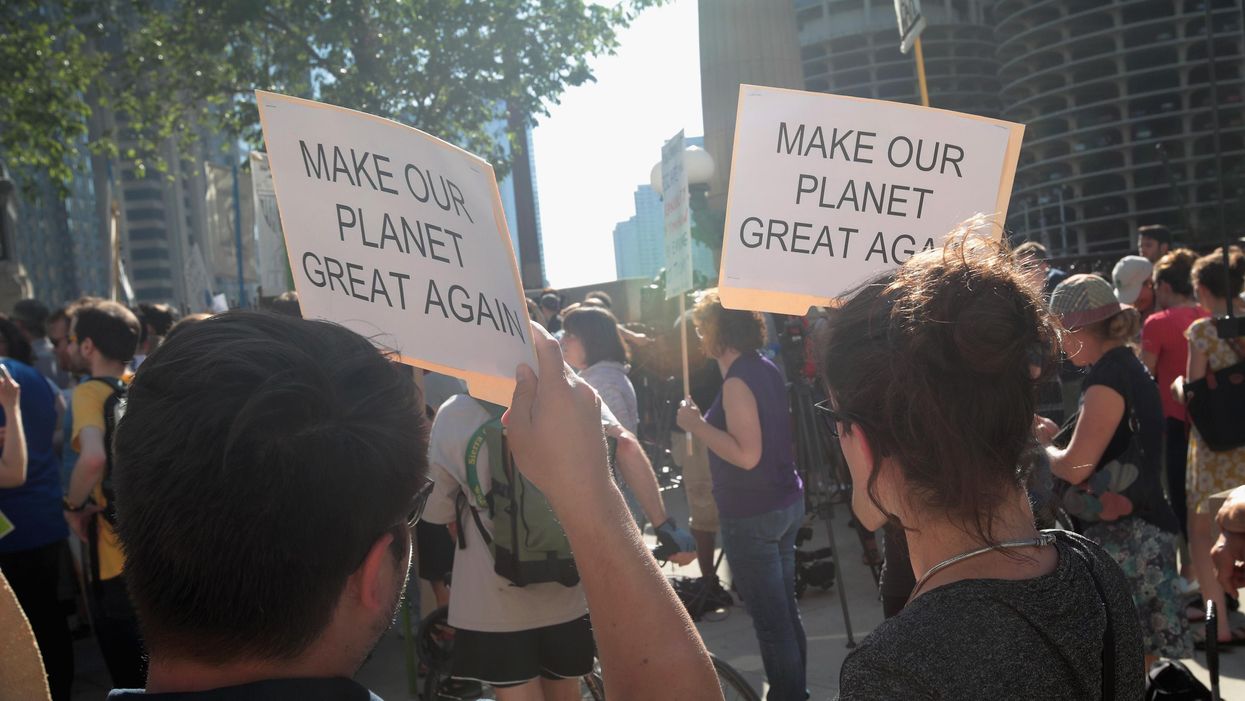In February, the United Nations issued a new report that claimed climate change is happening faster than anticipated. The U.N. report was the latest in a string of studies warning that humans are approaching a red line, after which it will be too late to reverse the damage.
But the federal government has not advanced major environmental protection legislation in decades, as partisanship has brought Congress to a state of near total gridlock. In fact, it may take some structural reforms to recreate the shared sense of responsibility that drove the legislative process of the mid-to-late 20th century.
Beginning in 1963 with the Clean Air Act, Congress passed a series of laws, often with bipartisan backing, to limit humanity’s impact on the environment. However, momentum waned in the 2000s, as both parties moved further away from center.
Stephen Long, director of government relations at The Nature Conservancy, noted that although a few legislative actions on specific environmental impacts have been made, “no major climate change legislation” has been passed in recent years.
Partisanship has been a major roadblock in Congress for decades, according to Convergence CEO David Eisner, who leads efforts to mediate public policy disagreements on far more issues than just environmental policy.
“We’ve seen a steady march since the ’80s of increasing political tribalism,” said Eisner, who directed major programs under both the Obama and George W. Bush administrations.
Indeed, studies show that negative opinions of the opposing party have more than doubled since 1994. “There’s a lot more distortion and toxicity in how all Americans look at each other. That toxicity is distilled to a particularly poisonous level in Congress,” he said.
The two parties have generally retreated into two camps on environmental issues, with the division centered around the debate over whether climate change is man-made or a natural evolutionary process.
Climate action has become almost exclusively aligned with Democrats while Republicans tend or prioritize the economy over environmental concerns. Republican President Donald Trump announced the United States’ withdrawal from the 2015 Paris Climate Accord in 2017, whereas fellow Republican President Richard Nixon adamantly supported climate policy in the 1970s.
‘Golden era’
Public concern over human impact on the environment led to the Clean Air Act in 1963. That law, which was passed with bipartisan support, marked the beginning of a national effort to enact protective measures for the environment, eventually giving rise to the “golden era” of the modern environmental movement, stretching from the 1960s to the 1980s.
Six years after the enactment of the Clean Air Act, Democratic Sen. Henry Jackson proposed the National Environmental Policy Act, which was eventually signed into law by Nixon in 1970. This law was foundational in creating a broad framework for environmental protection in the United States and establishing the Council on Environmental Quality.
“It is particularly fitting that my first official act in the new decade is to approve the National Environmental Policy Act,” Nixon said. “I [am] convinced that the 1970s absolutely must be the years when America pays its debt to the past by reclaiming the purity of its air, its waters, and our living environment. It is literally now or never.”
Throughout the remainder of the 1970s Congress passed several other climate protection measures including amendments to the Clean Air Act and then the Clean Water Act, with bipartisan votes to approve the bill and again to override Nixon’s veto.
The following two decades also saw a continuation in this trend of environmental protection. The introduction of the Comprehensive Environmental Response, Compensation and Liability Act was enacted with broad support in 1980 as a response to the devastating effects of hazardous pollution and contamination in Superfund sites.
Polarization: fact and fiction
The partisan chasm in Congress may not be reflective of the American public.
Both Eisner and Long said voters may often agree on more than they realize due to media portrayals of each party’s stance on certain issues. For example, public opinion polling shows the majority of Republicans place significant importance on government action against climate change.
Some experts believe the path back to bipartisan legislating must include structural changes to the political system.
For example, Long believes altering the campaign finance system would lead to more thoughtful policymaking.
“The cost of running a campaign has increased dramatically … a lot of elected officials have to spend a huge amount of time doing fundraising … meaning they spend less time making policy and less time getting to know each other as people,” he said.
Other ideas center around altering an election framework that tends to drive highly partisan outcomes, rather than the selection of lawmakers who are willing to collaborate across the aisle.
We must “recognize that there are structural elements in our electoral system that contribute to candidate selection which yields more partisan candidates than you would otherwise,” said Erik Olsen, co-founder of the Common Ground Committee.
Reform advocates often point to closed primaries, partisan gerrymandering and “first past the post” elections as systemic constructs that reinforce partisan positions.
Because a small percentage of the population often determines the winner of an election (what Unite America refers to as the “primary problem”), “the polarization that you see in media and on the internet is not representative of the population at large,” Olsen said.
The key, according to people like Eisner, Long, and Olsen, is to highlight areas of agreement when they arise. Specifically, Eisner emphasized the importance of listening and self-awareness.
“The ability to listen is what enables us to recognize each other as human beings, and what enables us to approach each other without judgment and with curiosity,” he said. “Self-awareness is critical for us to understand that all of us have biases. … But once we know that then we can address the distortions of the bias.”



















Trump & Hegseth gave Mark Kelly a huge 2028 gift